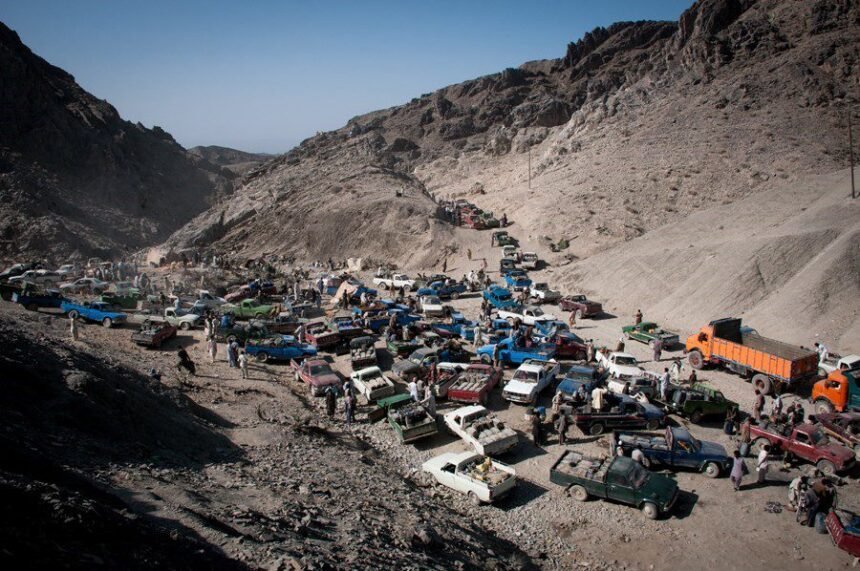The Baloch National Movement’s Social Welfare Department released a revealing report highlighting the economic challenges faced by Balochistan due to border closures and trade limitations. The report delves into the historical context, emphasizing the impact of British occupation, subsequent territorial divisions, and the current state of neo-colonial suppression.
The report sheds light on the plight of the Baloch people, enduring a multifaceted assault on their identity, culture, education, and an escalating economic crisis within the Pakistani-occupied region. It highlights the absence of substantial industrial infrastructure in Balochistan, despite potential hubs like the Hub in Lasbela district, primarily employing non-locals, depriving Balochistan residents of employment opportunities.
Specifically focusing on the trade corridors along the western border, the report details key trade points such as Taftan, Mashkail, Abdoi, Pishin-Mand , reemdan, Kohak , Paroom , Pasabnadan , Gwatr and Kullani-Kuntani Border, underscoring the challenges faced by traders, including extortion, token systems, poor road conditions, and unpredictable closures. The report emphasizes the devastating impact of intermittent border shutdowns, leading to hunger and mass unemployment among the Baloch nation.
Furthermore, the report draws attention to the economic paralysis imposed upon Balochistan by the Pakistan army and local mafia, leaving the region vulnerable to famine and economic collapse should trade activities face sudden halts. It urges global awareness and advocacy for the Baloch nation’s plight, emphasizing the urgent need for sustainable economic stability and humanitarian support in the region.


